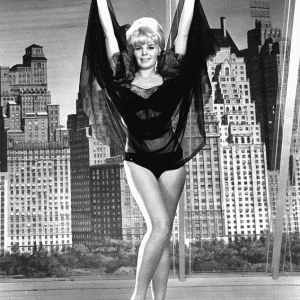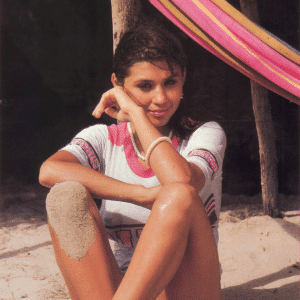When it comes to iconic television shows, Friends is undeniably one of the most beloved. However, for all its popularity, the show has faced criticism for its lack of diversity. Aisha Tyler, who joined the cast in 2003 as the first recurring Black character, has recently opened up about this issue and how it impacted her personally and professionally. In a candid interview with The Independent, Tyler discussed her experience on Friends, being labeled the “Black girl from Friends,” and the broader issues of diversity in Hollywood.
Aisha Tyler’s Groundbreaking Role on Friends

In 2003, Aisha Tyler became the first Black actor to have a recurring role on Friends, portraying Charlie Wheeler, a paleontology professor who dates both Joey (Matt LeBlanc) and Ross (David Schwimmer). At the time, this was seen as a significant step forward for representation on the show, which had long been criticized for its predominantly white cast despite being set in the diverse city of New York.
However, Tyler’s achievement as a Black woman on such a high-profile show was a double-edged sword. In her interview, she revealed that people frequently referred to her as “the Black girl from Friends.” Reflecting on that time, she said, “It wasn’t like it was just something that people looked back at later and said, ‘Wait a minute.’ No, at the time, people talked quite a bit about the fact that, for a show set in the heart of Manhattan, it really lacked diversity.”
Lack of Social Media Limited Conversations on Diversity
Tyler noted that although there were conversations about the show’s lack of diversity while Friends was still airing, the dialogue wasn’t as widespread as it could have been. She attributes this to the lack of social media platforms, which today amplify discussions on representation in the media. “We didn’t have social media back then, so it wasn’t the large-scale conversation that it became later,” Tyler remarked, highlighting how these platforms have since enabled people to hold the entertainment industry accountable for its inclusivity.
David Schwimmer’s Push for Diversity
Interestingly, Tyler shared that her character’s race was never explicitly written into the show. She credits David Schwimmer for advocating for more diversity in casting. “There was nothing in the writing of my character or in the stage directions that indicated Charlie was supposed to be a woman of color. I know that David has said that he really pushed for that [more diversity], and I think that’s wonderful,” she said.
This insight reveals how diversity was not always prioritized in the show’s writing or casting, but Tyler’s presence on Friends was part of a broader effort to acknowledge the need for more representative characters, even if it came late in the show’s run.
A Character Beyond Stereotypes
One of the aspects Tyler appreciated about her role was that Charlie Wheeler was not defined by her race. Her character was written as a smart, accomplished, and attractive paleontology professor—attributes that had nothing to do with her being Black. Tyler explained, “What I liked was that they just wrote this smart, sexy character, and she happened to be Black… They weren’t trying to seismically change what the show was, but they were aware of the fact that it didn’t feel totally representative of the world as it existed then.”
Tyler’s character was a refreshing departure from the often one-dimensional portrayals of Black women on television during that time. Instead, she was presented as a complex individual, whose race was only one part of her identity, not the defining characteristic.
Hollywood’s Longstanding Diversity Problem
High fives for Aisha Tyler's birthday! #FRIENDS pic.twitter.com/v2aj5TcUA6
— FRIENDS (@FriendsTV) September 18, 2023
Despite her groundbreaking role on Friends, Tyler encountered similar challenges when seeking other roles in Hollywood. She revealed how filmmakers often told her they had already filled their quota of Black characters for a project, an experience that highlights the pervasive issue of tokenism in the industry. “I’m like, ‘Have you never seen two Black people in the same room in the real world? Is there just one of us? Are we like Superman and Clark Kent? When I leave the room, does Kerry Washington come in?’” Tyler remarked, calling out the absurdity of such limitations.
Tyler’s frustration with the industry’s lack of diversity mirrors the experiences of many actors of color, who are often cast in stereotypical roles or relegated to being the sole representative of their race on a show or movie.
A Changing Landscape in Hollywood

While Tyler’s experience on Friends reflected a time when diversity in television was scarce, she expressed optimism about how much progress has been made since then. She acknowledged that Hollywood has become more open to telling diverse stories and showcasing characters from a range of backgrounds.
“We know that great stories are human stories, and they’re varied and diverse and compelling,” Tyler said. The increasing representation of marginalized groups in Hollywood, including Black, LGBTQ+, and other underrepresented communities, has shown that audiences are eager for more inclusive narratives. Tyler’s career, which has since expanded beyond Friends to include roles in Archer, Criminal Minds, and Whose Line Is It Anyway?, is a testament to how the entertainment industry is slowly but surely evolving.
Aisha Tyler’s role on Friends may have been a pivotal moment for representation on the show, but it also underscored the broader issues of diversity in Hollywood. As the first recurring Black character on the beloved sitcom, she broke barriers and brought attention to the show’s lack of inclusivity. However, the challenges she faced both during and after her time on Friends reveal the long road Hollywood has had to travel to embrace more diverse stories.
Tyler’s reflections serve as an important reminder that while progress has been made, there is still work to be done. Her career, filled with diverse roles and accomplishments, stands as an example of how powerful storytelling can be when actors are allowed to break free from tokenism and bring fully realized characters to life.
Today, Aisha Tyler continues to be a trailblazer, proving that great stories transcend race, and that Hollywood—and its audience—is ready for a broader spectrum of voices and experiences.


